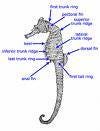I realized things were going sideways when we abandoned Bagram Air Base. Dead of night, no notice. And then city after city fell. This is a clusterfuck I thought.
I woke up at 2:30 AM August 16 and watched on Twitter, via my RSS feed (handcrafted list of journalists) as the Taliban entered Kabul and the president fled the palace and the country.
Predictable atrocities occurred. I’m familiar with disasters, with cascading unanticipated consequences, and I’m media literate. So I knew fairly immediately the evacuation would be FUBAR, that the State Department and military would tragically cross-communicate, that SIVs were backlogged and bureaucratically designed to be impossible, there would be casualties in the crush, that dumb luck and connections would supercede protocol.
The first-day stampede in Kabul Airport, the stowaways dropping from the sky, the next-day crush and deaths, the confiscation of property and documents, the beatings, the byzantine, impossible enter-Sesame rituals at the gate, the subjective, tragic denials of entry, the half-empty flights and the almost empty crowd-funded charters, then the suicide bomber and the dead Marines and the panicked American soldiers firing indiscriminately into the crowd, kiling more than had the bomb itself, the paranoid, piss-poor “intelligence” that led to a drone strike on an SIV interpreter’s extended family and the death of 7 children, and the crates of dogs of contractors left on the tarmac at the end. All predictable. All atrocities.
Apparently, even as I, sleepless for days, tears coursing down my cheeks, powerless and paralyzed, watched from afar, apparently it was all my fault.
A woman named Rafia Zakaria had a book coming out, “Against White Feminism,” and what better tie-in, what better hook than, on August 17 in The Nation, to publish an essay titled “White Feminists Wanted to Invade.” Various high-profile white women, many of whom had merely fund-raised or awareness-raised for Afghan women’s rights, were conflated with warmongering decision-makers (almost exclusively white men). I was so angry I saw red. The rank opportunism, and smug academic-concepetual tautology of this essay: the moral one-upsmanship, the desecration of grief and empathy into blame.
Zakaria offers an out: all white women who are feminists are not “white feminists” in her schema. Which offers a path for personal pleas for exemption. Exemption-by-biography and exemption-by-personal belief do not interest me. Whether my personal feminism is sufficiently intersectional, whether I was vehemently anti-war or pro-human-rights intervention should be entirely irrelevant to her argument. Did I have a platform, was I a pundit, was I an influencer, was I a stakeholder, was I descisionmaker, did I have a seat at the table? No. So at most this was a thought crime. A thought crime of empathy at which is laid 20 years of civilian death via drone strike.
Oh, but Zakaria was not alone in telling me that Afghanistan was my fault. Yesterday I learned, from the impassioned, distraught mother of one of the Marines killed in the suicide bombing, that anyone who voted for Joe Biden killed my son. You voted for this.
Tom Nichols in the Atlantic eschews nuance. Afghanistan is Your Fault was the title of his piece. My fault. Mine.
Of course, prior to invasion, Afshanistan was also my fault. Did I not believe that Afghan women deserved the same opportunities as myself? How myopic! How racist! How hypocritical to call myself a feminist and yet be opposed to US intervention. Why, I was actually supporting terrorism, had I not heard of the atrocities of the Taliban? These arguments, cynically appropriated (literally crafted and workshopped by consultants) by Bush administration lackeys and talking heads, were not entirely hollow: feminists, even feminists of color, even Afghan women in exile and in situ, saw potential salvation in the US banishing the Taliban.
On the tail end, in a perfect one-two punch, Caitlin Flanagan, again in the Atlantic, on August 19, chastises “It’s remarkable how quickly liberals abandoned the women of Afghanistan” in her piece The Week the Left Stopped Caring About Human Rights. In this telling I am congratulating myself on long-longed-for withdrawal from Afghanistan while blind to its dire consequences for the progress of women. I have forgotten about Malala. I am refusing to “take it on the chin” when I get what I asked for. “But you need to be ready to take it on the chin when you get what you ask for and the inevitable happens: girls being forced into child marriage and forbidden to go to school or to leave the house without a male relative.” Wake up and smell the coffee. It’s my fault. Mine.
